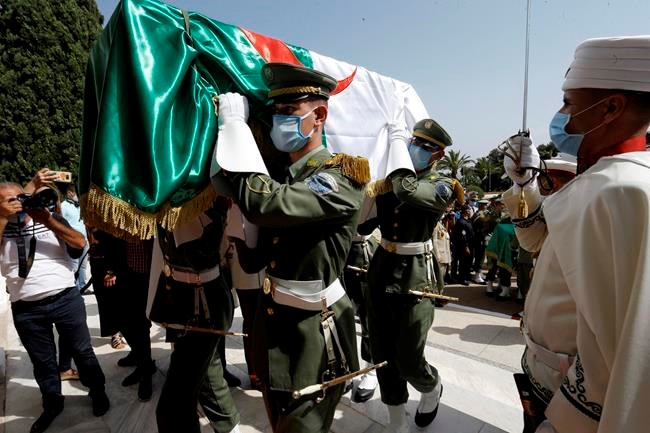ALGIERS, Algeria — After decades in a French museum, the skulls of 24 Algerians decapitated for resisting French colonial forces were formally repatriated to Algeria on Friday in an elaborate ceremony led by the teary-eyed Algerian president.
A 21-gun salute thundered from Algiers’ international airport as a military plane touched down, carrying the remains. Boats in the ports of Algiers sounded their horns to welcome the arrival.
The return of the skulls was the result of years of efforts by Algerian historians, and comes amid a growing global reckoning with the legacy of colonialism.
“The valiant resistance fighters who refused the colonization of their country by imperial France were displayed immorally for decades, like vulgar objects of antiquity, without respect for their dignity, their memory. That is the monstrous face of colonization,” Algerian army chief Said Chengiha said in a speech.
“Algeria is living a special day today,” he said.
The 24 fought French colonial forces who occupied Algeria in 1830 and took part in an 1849 revolt. After they were decapitated, their skulls were taken to France as trophies.
In 2011, Algerian historian and researcher Ali Farid Belkadi discovered the skulls at the Museum of Man in Paris, across from the Eiffel Tower, and alerted Algerian authorities.
The researcher lobbied for years for their return, and Algeria’s then-president, Abdelaziz Bouteflika, eventually launched the formal repatriation request. French President Emmanuel Macron agreed in 2018 but bureaucratic obstacles delayed the return until now.
The remains will be on public display at the Palace of Culture in the capital Saturday, and then will be buried in a special funeral east of Algiers on Sunday — the 58th anniversary of Algeria’s independence from France after a long and bloody war.
In tears, Algerian President Abdelmadjid Tebboune presided over Friday’s ceremony, alongside the heads of both houses of parliament and top military officials. Three MiG jets escorted the Algerian Ilyushin military plane carrying the remains.
The skulls were placed in coffins wrapped in the Algerian flag, and carried by soldiers across the tarmac as a military band played.
Historians welcomed the return of the remains, but say they are just part of Algeria’s history that is still in French hands.
“We have recovered part of our memory,” historian Mohamed El Korso told The Associated Press. “But the fight must continue, until the recovery of all the remains of the resistance fighters, which number in the hundreds, and the archives of our revolution.”
The Associated Press



